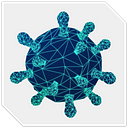Covid-19 Animal Reservoirs: Will They Take Us by Surprise?
Humans can transmit Covid-19 to other animals, and they might return the favour.
Zoonosis refers to infections that can be transmitted from animals to humans. There is also reverse zoonosis — called anthroponosis — wherein human infections get transferred to other animals. And this reverse zoonosis process can be reversed again — reverse anthroponosis.
Covid-19 Human-mink-human Transmission
Is reverse anthroponosis possible with Covid-19? Yes. In May 2020, the Dutch government announced that a few farmers contracted Covid-19 from minks (a close relative of ferrets). These minks also got Covid-19 from a human worker. Many infected minks also got sick and died. To prevent the possible animal-to-human spread, the government gassed more 500,000 minks to death with carbon monoxide.
Hence, Covid-19 can be passed from humans to animals and from animals to humans. “Concern is growing over possible anthroponosis of SARS-CoV-2, especially in light of its recent discovery and spread on mink farms in the Netherlands and in Spain,” a Lancet paper by researchers at University College London stated. “With the suggestion that there was transmission back to humans.”

